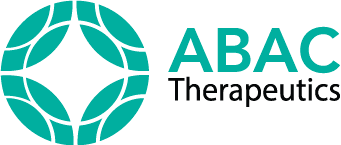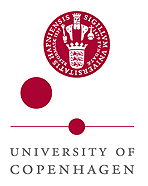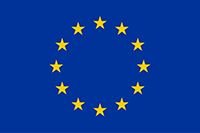Partners
 Oxford Brookes is one of the UK’s leading modern universities and enjoys an international reputation for teaching excellence and innovation, as well as strong links with business and industry. It has >17,000 students from a broad range of social and cultural backgrounds. They are enrolled on courses that range from foundation to postgraduate level. 14% are international (non-UK/EU) students coming from 132 countries worldwide. Department of Biological and Medical Sciences will participate in INNOTARGETS. Its research spans a wide range of areas, including plant and animal biology, biomedical science, cell and molecular biology, conservation and the environment. It offers a number of flexible research degree opportunities including MSc by research, MPhil, PhD and PhD by published work.
Oxford Brookes is one of the UK’s leading modern universities and enjoys an international reputation for teaching excellence and innovation, as well as strong links with business and industry. It has >17,000 students from a broad range of social and cultural backgrounds. They are enrolled on courses that range from foundation to postgraduate level. 14% are international (non-UK/EU) students coming from 132 countries worldwide. Department of Biological and Medical Sciences will participate in INNOTARGETS. Its research spans a wide range of areas, including plant and animal biology, biomedical science, cell and molecular biology, conservation and the environment. It offers a number of flexible research degree opportunities including MSc by research, MPhil, PhD and PhD by published work.
 Heinrich Heine University is a mid-sized university located in Düsseldorf, Ge. It is currently home to 365 professorships and approx. 32,000 students, 11 % of whom are from abroad. UDUS is a campus university. All faculties and institutes with their teaching facilities and laboratories, are within walking distance. The University comprises three large faculties (Mathematics and Natural Sciences, Medicine, Arts and Humanities) and two smaller ones (Law, Business Administration and Economics). Five key research areas currently shape the research profile of UDUS: Plant Sciences, Membrane Biology, Cardiovascular Sciences, Hepatology and Language Studies. UDUS is home to the Cluster of Excellence on Plant Sciences "SMART Plants for Tomorrow’s Needs", the only plant cluster funded in the framework of the German Excellence Initiative.
Heinrich Heine University is a mid-sized university located in Düsseldorf, Ge. It is currently home to 365 professorships and approx. 32,000 students, 11 % of whom are from abroad. UDUS is a campus university. All faculties and institutes with their teaching facilities and laboratories, are within walking distance. The University comprises three large faculties (Mathematics and Natural Sciences, Medicine, Arts and Humanities) and two smaller ones (Law, Business Administration and Economics). Five key research areas currently shape the research profile of UDUS: Plant Sciences, Membrane Biology, Cardiovascular Sciences, Hepatology and Language Studies. UDUS is home to the Cluster of Excellence on Plant Sciences "SMART Plants for Tomorrow’s Needs", the only plant cluster funded in the framework of the German Excellence Initiative.
 Wageningen University is an internationally leading education and research organization. WU participates through the Host-Microbe Interactomics (HMI) Group (30 persons), which is part of the Animal Sciences Department (650 FTE). The HMI group has an excellent research quality and performs research on the host and microbe as a system, and on topics relevant to gut health, infection biology, and antimicrobial discovery. The group published 175 papers in the last 5 years and the annual turnover in grant income is around 2 million euros.
Wageningen University is an internationally leading education and research organization. WU participates through the Host-Microbe Interactomics (HMI) Group (30 persons), which is part of the Animal Sciences Department (650 FTE). The HMI group has an excellent research quality and performs research on the host and microbe as a system, and on topics relevant to gut health, infection biology, and antimicrobial discovery. The group published 175 papers in the last 5 years and the annual turnover in grant income is around 2 million euros.
![]() IRTA is the Catalan Research Institute for technology in food and agriculture (www.irta.es). IRTA's mission is to contribute to the sustainable development of the agri-food sector, with the goal of promoting research and technology development and transfer. The animal health program of IRTA is developed at CReSA (Centre de Recerca en Sanitat Animal), which is well known in this area.
IRTA is the Catalan Research Institute for technology in food and agriculture (www.irta.es). IRTA's mission is to contribute to the sustainable development of the agri-food sector, with the goal of promoting research and technology development and transfer. The animal health program of IRTA is developed at CReSA (Centre de Recerca en Sanitat Animal), which is well known in this area.
 Porto Conte Ricerche (PCR) is a non-profit Research Organization that supports the development of cutting-edge technologies or new products with a view to potential industrial applications. PCR counts on a multidisciplinary research team that covers several areas such as: chemistry, biotechnology, functional genomics and proteomic enabling technologies. PCR manages the Technology Park of Sardinia in Alghero where it hosts its own research center and 15 enterprises and organizations.
Porto Conte Ricerche (PCR) is a non-profit Research Organization that supports the development of cutting-edge technologies or new products with a view to potential industrial applications. PCR counts on a multidisciplinary research team that covers several areas such as: chemistry, biotechnology, functional genomics and proteomic enabling technologies. PCR manages the Technology Park of Sardinia in Alghero where it hosts its own research center and 15 enterprises and organizations.
![]() Naicons is actively involved in screening actinomycetes for novel antibiotics, specifically on the discovery, purification and structural determination of active molecules from microbial extracts, on the characterization of anti-infective molecules, and on the development and manipulation of the producing strains. The Naicons team currently consists of about 12 people, mostly scientists.
Naicons is actively involved in screening actinomycetes for novel antibiotics, specifically on the discovery, purification and structural determination of active molecules from microbial extracts, on the characterization of anti-infective molecules, and on the development and manipulation of the producing strains. The Naicons team currently consists of about 12 people, mostly scientists.
 The Department of Biomedical Science holds 66 members active in several field of researches including anatomy, physiology, genetics, biochemistry, microbiology, histology, haematology, and pathology. The has extended international collaborations also with University of Developing Countries.
The Department of Biomedical Science holds 66 members active in several field of researches including anatomy, physiology, genetics, biochemistry, microbiology, histology, haematology, and pathology. The has extended international collaborations also with University of Developing Countries.
 The company is focused on the discovery of first-in-class, pathogen-specific and narrow spectrum antibiotics with novel mechanism of action for the treatment of severe hospital infections due to MDR pathogens. Focus on disruptive innovation including product with novel target product profile (TPP) and an innovative strategy for the discovery of drugs: the PasNas. The PasNas is based on an algorithm to identify high quality leads, molecules that meets multiple developability criteria and therefore increases the probability of selecting robust candidates after the lead optimization process, reducing technical risk and maximize success to reach the market. The combination of both innovations, product and strategy for drug discovery, provides ABAC with a differential character and turns the company into a pioneering biotech platform in drug discovery. The most advanced program of its pipeline, the anti-Acinetobacter program is granted by the IMI-ENABLE initiative.
The company is focused on the discovery of first-in-class, pathogen-specific and narrow spectrum antibiotics with novel mechanism of action for the treatment of severe hospital infections due to MDR pathogens. Focus on disruptive innovation including product with novel target product profile (TPP) and an innovative strategy for the discovery of drugs: the PasNas. The PasNas is based on an algorithm to identify high quality leads, molecules that meets multiple developability criteria and therefore increases the probability of selecting robust candidates after the lead optimization process, reducing technical risk and maximize success to reach the market. The combination of both innovations, product and strategy for drug discovery, provides ABAC with a differential character and turns the company into a pioneering biotech platform in drug discovery. The most advanced program of its pipeline, the anti-Acinetobacter program is granted by the IMI-ENABLE initiative.
![]() Nurex is a company that design produces in vitro diagnostic devices for the diagnosis of microbial, viral and genetic diseases. The company also produces robotic machines for the automation of the molecular diagnosis.
Nurex is a company that design produces in vitro diagnostic devices for the diagnosis of microbial, viral and genetic diseases. The company also produces robotic machines for the automation of the molecular diagnosis.
More information are available at www.nurex.it.
 University of Copenhagen (UC) is the largest University in the Scandinavian countries, with close to 40,000 students and more than 9,000 employees. Scientists from Department of Veterinary and Animal Sciences (DVH) participate. This Department employs 350 staff including more than 100 PhD students. It covers relevant disciplines such as microbiology, experimental animal science, AMR and pathology.
University of Copenhagen (UC) is the largest University in the Scandinavian countries, with close to 40,000 students and more than 9,000 employees. Scientists from Department of Veterinary and Animal Sciences (DVH) participate. This Department employs 350 staff including more than 100 PhD students. It covers relevant disciplines such as microbiology, experimental animal science, AMR and pathology.

